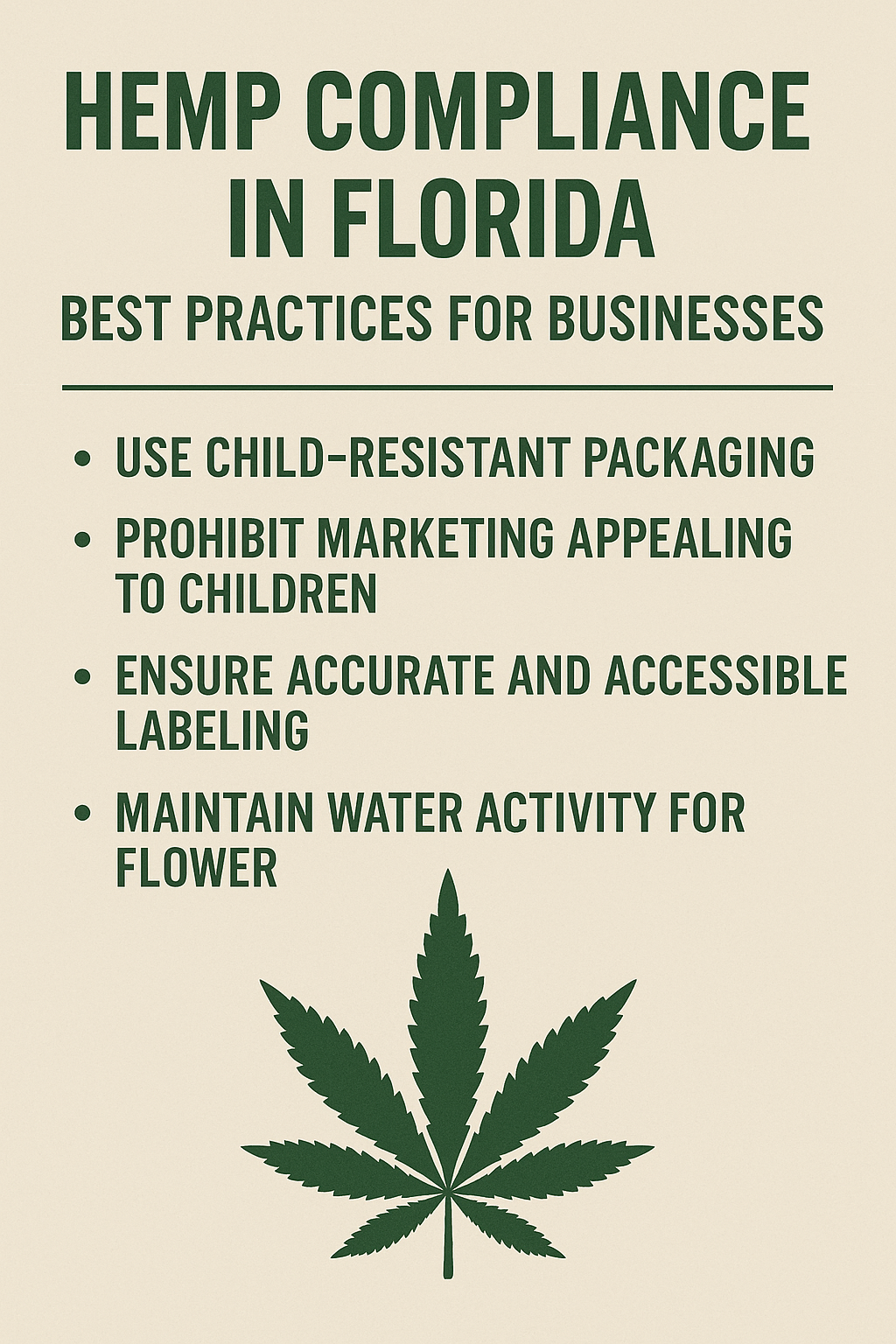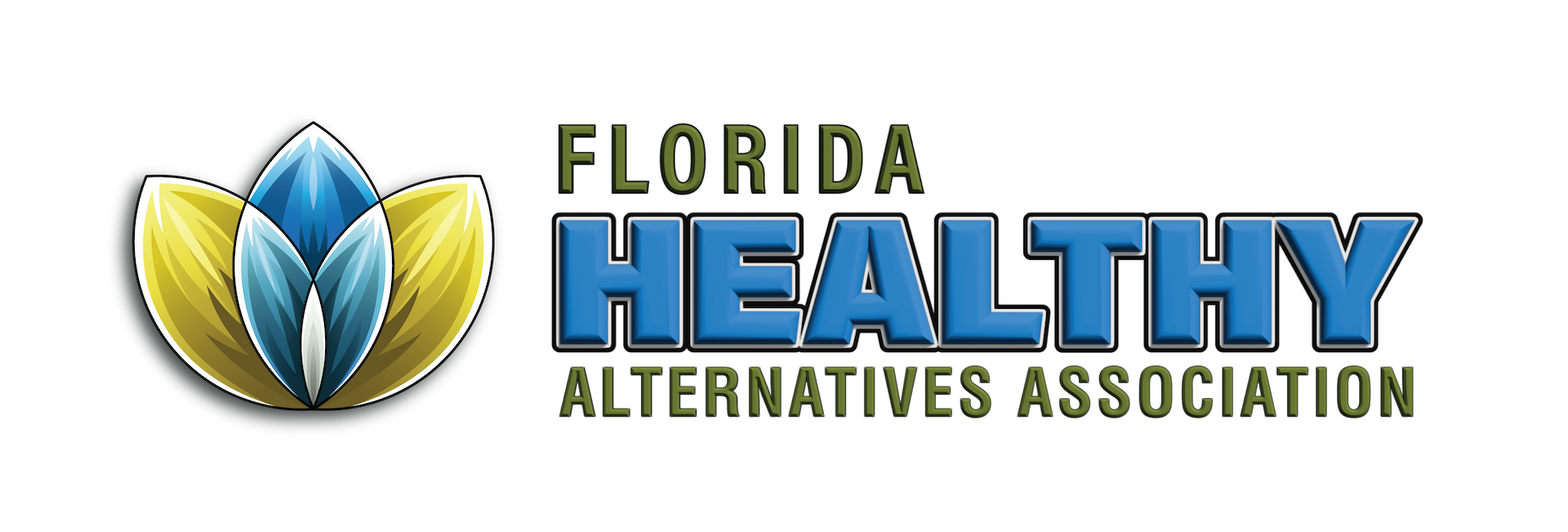
Why Compliance Is Critical in Florida’s Hemp Market
As Florida’s hemp market matures, so does the responsibility of businesses to operate safely, legally, and transparently. Compliance is no longer just a box to check—it’s the foundation of long-term success in the hemp industry. With the Florida Department of Agriculture and Consumer Services (FDACS) enforcing new amendments to Rule 5K-4.034 beginning June 16, 2025, now is the time for hemp food establishments to tighten up their operations and ensure full compliance.
This post explores why compliance matters, outlines Florida’s key hemp regulations, and offers best practices to keep your business protected and thriving.
Florida is one of the most actively regulated states when it comes to hemp-derived products. This is not without reason—over the past year alone, FDACS has discovered more than 726,000 products targeting children, and conducted statewide inspections to protect public health and safety.
For businesses, noncompliance can lead to:
-
Product seizures
-
Fines and penalties
-
Suspension or revocation of food permits
-
Damage to brand reputation and consumer trust
Compliance isn’t just about avoiding enforcement. It shows customers and regulators that you’re serious about quality, transparency, and public safety.
Key Florida Hemp Regulations to Know
As of March 12, 2025 (with enforcement starting June 16, 2025), hemp businesses in Florida must adhere to the following:
1. Child-Resistant Packaging
All consumable hemp products must be sold in child-resistant packaging that meets ASTM D 3475-20 standards. This includes edibles, tinctures, topicals, and beverages.
2. Prohibition on Attractive Marketing
Products cannot be shaped like or packaged with imagery of animals, cartoons, or humans that may appeal to children. Packaging must avoid bright colors or candy-like designs.
3. Accurate and Accessible Labeling
-
Serving sizes must be listed using common household measurements.
-
Scannable QR codes or barcodes must link to the product’s Certificate of Analysis (COA) within three steps or fewer.
-
COAs must list:
-
Testing lab information
-
Total delta-9 THC concentration
-
Presence/absence of prohibited substances and pathogens
-
4. Water Activity for Flower
For smokable hemp products (flower or leaves), the water activity must be maintained at 0.60 ± 0.05 to prevent microbial growth.
Best Practices for Florida Hemp Businesses
Here are practical steps you can take today to ensure full compliance:
1. Audit Your Inventory
Review all products for:
-
Compliant labeling
-
Proper packaging
-
Approved ingredients and additives
Immediately pull any items that may appeal to children or fail to meet FDACS standards.
2. Work With Trusted Labs
Partner only with certified labs that provide full-panel COAs and can confirm the absence of heavy metals, pesticides, and microbes. Make sure each COA is up to date and publicly accessible.
3. Update Packaging Suppliers
Ensure your packaging vendors can verify compliance with ASTM child-resistant standards. Ask for documentation and avoid suppliers who cannot prove compliance.
4. Train Your Team
Educate your employees on what products can and cannot be sold, how to talk to customers about hemp responsibly, and what marketing language is compliant with Florida law.
5. Keep Records On File
Maintain organized documentation of:
-
Product COAs
-
Purchase and sourcing records
-
Internal compliance checks
This makes it easier to respond to inspections or inquiries from FDACS.
Final Thoughts
As Florida continues to lead with some of the most detailed hemp regulations in the country, staying compliant is not optional—it’s essential. By aligning with state laws and implementing best practices, you not only avoid penalties but also build a brand that consumers and regulators can trust.
At the Florida Healthy Alternatives Association, we’re committed to supporting hemp businesses through education, advocacy, and access to regulatory resources. If you need help evaluating your compliance strategy or connecting with compliant vendors and labs, reach out to us today.
Stay compliant. Stay credible. Stay in business.
For full details on Florida’s hemp laws and the latest rule updates, visit FDACS.gov.




